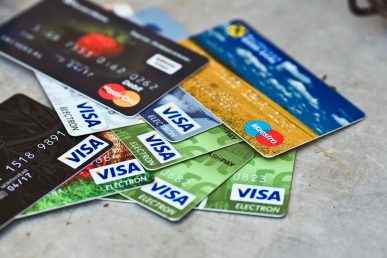
Q. I have gotten myself into too many credit card payments. The amounts owed are relatively small but I have 13 of them! I just missed the monthly payment on 3 of them. Can I get a loan to pay them? I also have a loan for $2500 and have been charged almost $1800 in fees since February. Is there anything I can do to save myself from bankruptcy?
Dear Reader,
You are already taking the first step to avoid bankruptcy–you are actively seeking alternatives to manage your debt. Although bankruptcy sometimes is the only avenue left for some people to start anew, it is definitely a last resort option.
Managing multiple credit card payments, even if they are small, can be overwhelming and it can quickly get out of hand. Missing payments on the credit cards that you don’t want anymore can actually cause you a lot of trouble and become more expensive to repay over time. Generally, when missed payments lead to delinquent accounts, your creditors will transfer your debt to their collection department or sell it to a collection agency. These debt collectors will then pursue you to recover what’s owed and, in some cases, they may sue you. If they are successful, a judge may order to have your wages garnished to repay them, which is usually the original debt, plus added fees.
So, the best way to deal with the situation is to look for options that will help you repay all your credit cards, including the ones that you don’t want to keep. One possibility, like you suggest, could be to take out a consolidation loan to pay them off. This option is usually available for consumers who have excellent credit and can get low rates on a new loan. In your case, if you have started to miss payments on some of your credit cards, your score will start to go down, which will hurt your chances of securing a personal loan with the most affordable repayment terms if you are able to do so at all. You also have to keep in mind that a consolidation loan does not eliminate your debt, it just moves it around, so you will still need a repayment strategy to pay it off in a short period of time.
Instead, you may want to consider other options like a debt management program. This program is usually administered through a nonprofit credit counseling agency and it helps you repay all your debt with one monthly payment with lower interest rates. However, this program requires that you stop using your all credit cards, and it’s likely that your creditors will close your accounts. Although it may seem inconvenient to close your accounts, it may be a solid alternative to bankruptcy. Still, you may have other debt repayment strategies available. If you need additional help finding repayment strategies, you can talk to an NFCC-certified credit counselor. Your counselor can also help you maximize your budget and help you deal with your $2,500 loan. This loan sounds like a payday loan, and breaking free of its vicious cycle takes hard work, but with the right guidance, you can repay. The sooner you work with a counselor, the more options you’ll have at your disposal to become debt free. Best of luck!
Sincerely,
Bruce McClary, Vice President of Communications
Bruce McClary is the Vice President of Communications for the National Foundation for Credit Counseling® (NFCC®). Based in Washington, D.C., he provides marketing and media relations support for the NFCC and its member agencies serving all 50 states and Puerto Rico. Bruce is considered a subject matter expert and interfaces with the national media, serving as a primary representative for the organization. He has been a featured financial expert for the nation’s top news outlets, including USA Today, MSNBC, NBC News, The New York Times, the Wall Street Journal, CNN, MarketWatch, Fox Business, and hundreds of local media outlets from coast to coast.